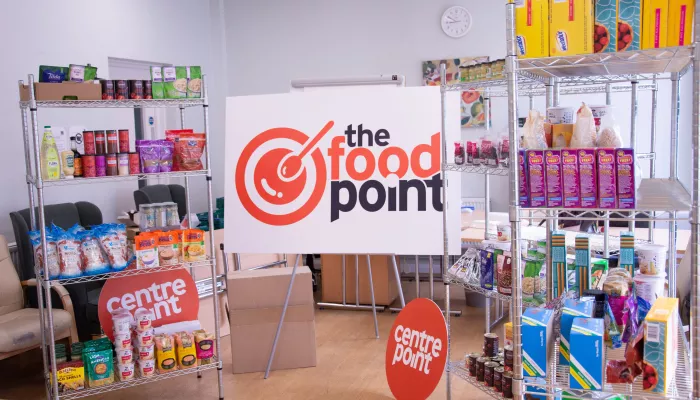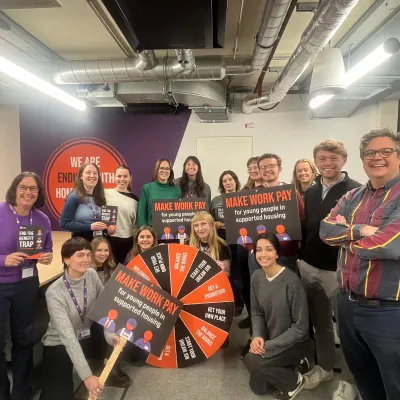Food insecurity is a problem nearly all Centrepoint young people face. It happens when someone doesn’t have reliable access to enough affordable, nutritious food. Shockingly, 60% of young people in our services who we surveyed reported that they had skipped meals, slept hungry and eaten less because they couldn’t afford food.
Going without food regularly means the body isn’t getting the nutrients it requires to function properly. This affects young people’s performance at college and in their jobs. Worrying about when they’re going to eat their next meal affects their mental wellbeing, and research tells us that food insecurity is associated with poorer mental health.
Centrepoint’s dietetics team
Centrepoint dietitians work with our young people to teach them about healthy eating and budgeting for food. But without enough money to buy nutritious food, many young people don’t have the chance to practice these skills.
To tackle this, the Dietetics Team came up with The Food Point, which is currently being piloted in an 80 bed service with plans to reach all our young people by next year.The Food Point is a social supermarket which provides access to healthy, affordable food. This project is about giving a hand up instead of a handout – instead of rummaging through end-of-day donated food items, young people pay a nominal fee which gives them choice, dignity and autonomy.
It also provides them with one-to-one time with one of our dietitians who guides them through the shop. Young people have the option of fresh, frozen and long-life foods and are encouraged to buy items from different food groups. The team introduces them to foods they’ve never tried before and gives them new recipe ideas. Next door, we’ve also set up a room where young people can enjoy a meal together that’s been cooked using ingredients from the shop.
The tools to experiment in the kitchen
Many young people at Centrepoint would rather buy a takeout and then go hungry for a few days. This way they know they will have had at least one meal that they will like rather than risking a failed attempt at cooking. It might be difficult to understand this if you know your way around the kitchen, but when you’ve never eaten a home cooked meal this is all you know.
The food industry throws away 1.9 million tonnes of food a year and 250,000 of that is still edible. We work with food waste charities to give a new life to this good quality surplus food that would otherwise be binned.
We want to introduce young people to new ingredients and give them the tools to experiment in the kitchen, something they wouldn’t usually be able to afford to do. We want to teach them how to cook nutritious food for themselves, without being overwhelmed by complicated recipes and hundreds of ingredients.







